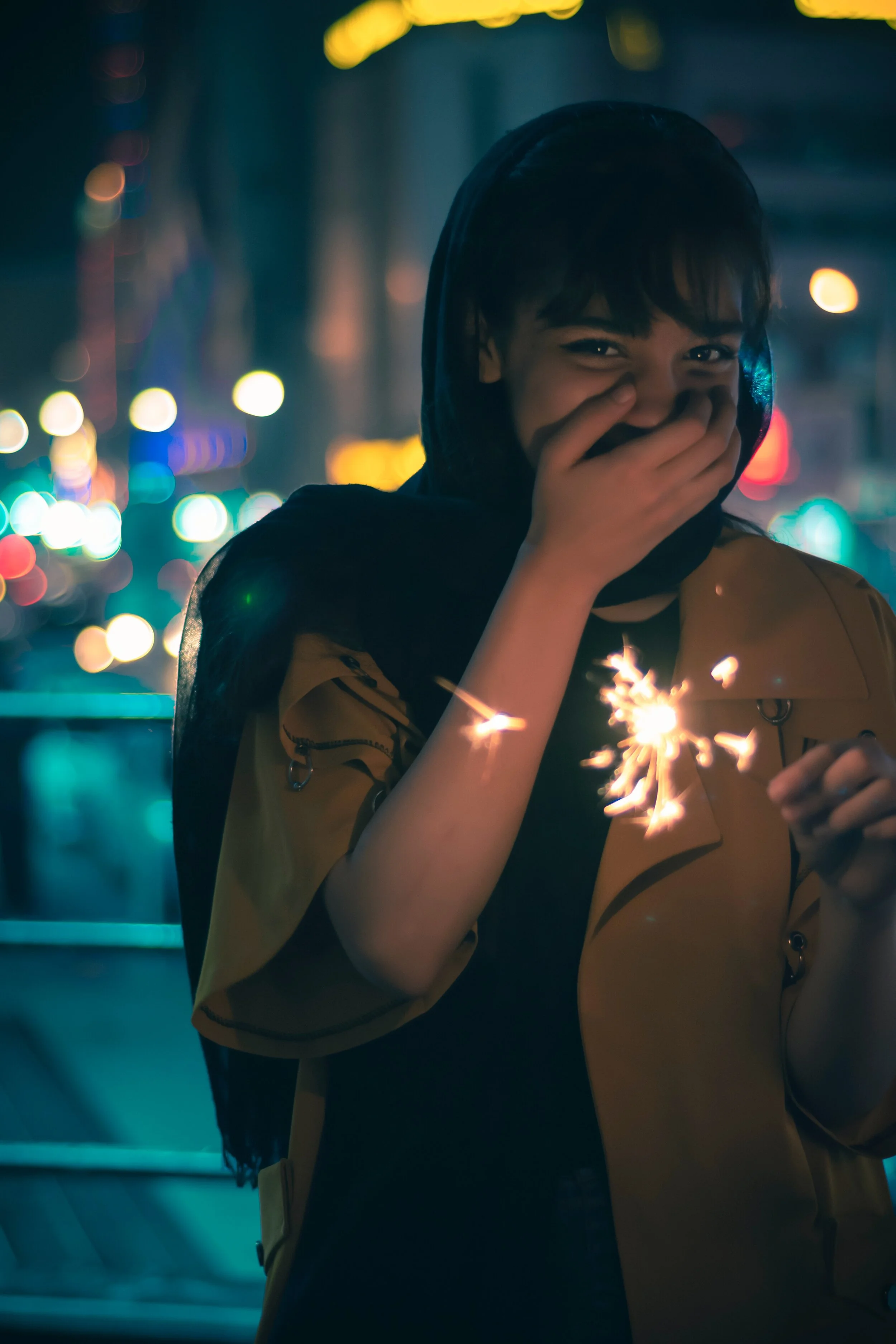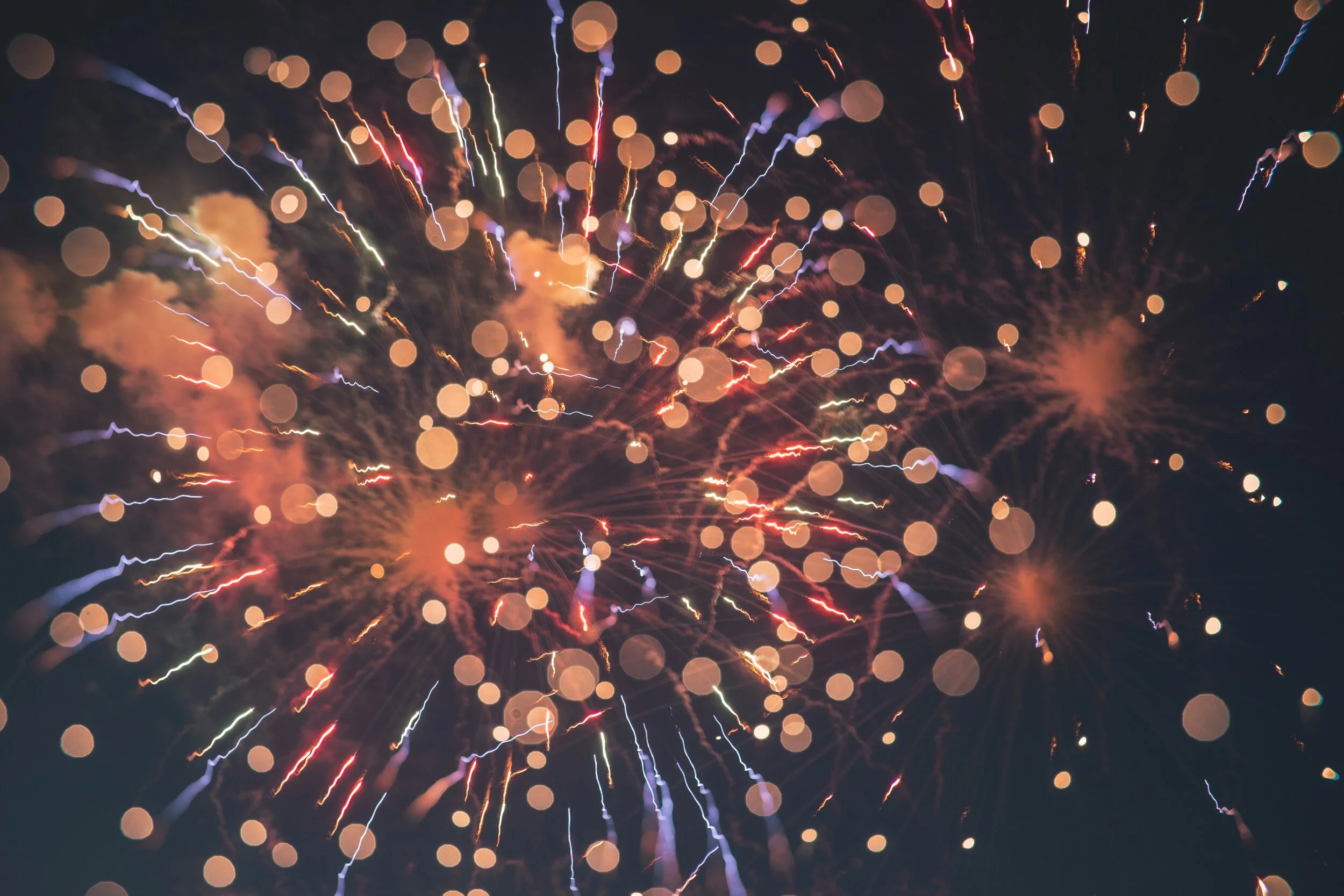Lesson Learned.
My mom has a problem.
Every 4th of July we buy a lot of fireworks. All of us have our favorites. I like smoke bombs. My sister likes sparklers. My brother likes “boom cannons.” And my dad likes to be left alone.
But my mom, she has the real issue. She buys several hundred Black Cat firecrackers and methodically unwraps them from the package. She places mounds of Black Cats in little piles around her person.
She grabs a generous handful, and proceeds to light them one at a time. She tosses them right before they blow up. She giggles and squeals like a two year old opening Christmas presents.
I don’t know what causes so much delight. Maybe the danger? Maybe the loud noise? Maybe the rebelliousness?
Regardless, she is surprisingly adept at her little process. Granted, it is THE WORST possible modeling for the neighborhood children, but it still entertains us.
Apparently I am not as smart as my mom, because I tried to take her scheme one step further. I rummaged through the garage and found a bright purple, plastic Easter egg. As any 9 year old would surmise, a Black Cat and Easter egg would be perfect complements!
So I lit the Black Cat, closed the egg around it, and threw it far away from me (better safe than sorry!). I waited a minute or two. . . nothing. Lame.
I walked over to the plastic egg and picked it up. I placed it next to my ear to see if I could hear the wick.
BAM!
The egg exploded around my head, deafening me, cutting me, and generally making me feel like an idiot.
This may surprise you, but I’ve never combined Easter eggs and Black Cats since. I learned my lesson.
We learn lessons like this all the time.
Sometimes it is one dramatic event (abuse from a family member), and sometimes it is subtle and familiar (lots of drama in the household).
We all have various experiences, and it is natural for us to draw upon those experiences to concoct prediction-scripts: Do this. Don’t do that. This is dangerous. This is safe. This is edible. That is a Lego.
My point is we learn a lot of lessons as we grow up, and many of those lessons are not helpful.
If our dad was a raging a$$hole we may conclude men are unsafe. If our mom was a drama-queen we may conclude women are exhausting. These would be natural conclusions from our limited data.
But our “lessons,” instead of being protective often become our biggest source of pain. We react to these lessons in self-protective ways, and they often reenact our pain.
Take for example the a$$hole dad. We might have learned to avoid intimacy or being vulnerable with men. We are therefore starving for male intimacy, which makes us far more likely to choose someone poorly suited for us (or we might make poor life decisions with men). Either way, we created more pain because of our initial pain.
It is analogous to me avoiding Easter Eggs and firecrackers because I had a terrible experience with them. Separately, they are fun and relatively safe. My generalizing their danger because of my isolated experience is what we tend to do as humans.
Most often, we do this because we don’t understand how to get healing for our pain. Many of us didn’t have present, connected, or compassionate care-givers. Our emotional wounds, instead of being met with compassion and released, were harbored and protected.
Imagine a small knife sticking out of your chest. If you couldn’t remove the knife, you would be in continuous pain. You might learn to ignore it (at times), but the majority of your existence would be adapting so you could minimize the pain. In addition, as long as the knife is embedded it never has the ability to heal.
Our emotional wounds are similar. Most of us are walking around with small and large wounds that are forcing us to adapt our lives. We are off-balance the majority of time because subconsciously we are trying to avoid future (and similar) pain.
But what would happen if the knife could be removed?
The wound would heal, and you wouldn’t have to constantly adapt your life to avoid more pain. You could relax. You could be at peace. You could enjoy activity again.
The same can be true with our emotional wounds.
At its simplest level, healing requires compassion and connection. We must face our biggest pains, and invite safe individuals into meeting us there.
When we do get “healing,” we can relax into being our authentic self again.
It allows us to understand that some of our lessons are brilliant and helpful, and others are self-protective responses to OUR experiences (and not necessarily universal realities).
My experience is not everyone’s experience.
Case in point, my nieces and nephews absolutely LOVE Easter eggs. They enjoy the sugar high and their parents enjoy the sugar-crash-nap that follows.
And my mom, despite all of our anxiety, laughs maniacally while flipping Black Cats from her fingertips.
The question is—if you followed along this far—fairly straightforward: What is your Easter Egg and Black Cat?
Specifically, what was painful in your life that you need to reconsider as potentially positive?
Men, women, marriage, intimacy, money, success, taking risks, adventure, therapy, anger, etc.?
Who knows. . . instead of blowing up in your face it might be a source of profound joy; Like a mom with an allotment of Black Cats.








